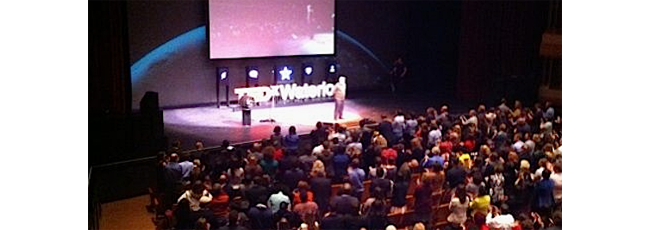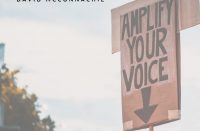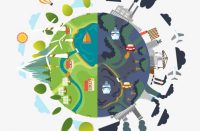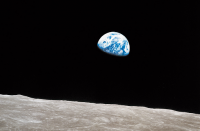I’d be impressed with anyone who soaks up the entire cocktail of ideas, emotions and possibilities served at TEDxWaterloo without feeling like they just put back a few too many. While the hangover of learning and introspection is still fresh, here are some favourite snippets of insight from each of the fabulous speakers at yesterday’s event at Centre in the Square in downtown Kitchener, Ontario, which explored the theme “Chasing Home.”
I’d be impressed with anyone who soaks up the entire cocktail of ideas, emotions and possibilities served at TEDxWaterloo without feeling like they just put back a few too many. While the hangover of learning and introspection is still fresh, here are some favourite snippets of insight from each of the fabulous speakers at yesterday’s event at Centre in the Square in downtown Kitchener, Ontario, which explored the theme “Chasing Home.”
Slam poet Holly Painter kicked things off with a heart-punching riff on finding home in her own skin. This line in particular is still sinking in: “When my family fell apart, why didn’t I hear a sound?”
Cognitive neuroscientist Jessica Grahn explained the unique relationship between music and human movement. Before introducing a crowd participation experiment to demonstrate how our reactions to music differ from others in the animal kingdom, she warned: “If you do worse than the monkeys we’re both going to look bad.”
Before delving into the many compelling reasons why we should treat our microbes with more respect (including the fact that they vastly outnumber our human cells and genes), Emma Allen-Vercoe posed an intriguing question to the crowd: “Everyone in this room would like to think they’re a human, correct?”
Chris Eliasmith, director of uWaterloo’s Centre for Theoretical Neuroscience and creator of “Spaun,” the world’s largest brain simulation, insists that he still needs plenty of help with wrapping our minds around themselves: “Building a brain can’t be left to a single lab — there’s plenty of complexity for everyone.”
Actor, author and contractor Mag Ruffman spent most of her stage time having a blast and being irresistibly charming. But she also offered up an intriguing theory in her defense of people who use hand-held tools for a living (or just for fun): “Creativity and intelligence evolved because we know how to work with our hands.”
American historian Susan Matt walked through humanity’s history with the concept of homesickness, and explained how far we’ve moved away from our original perception of it. And while 20th-century conventional wisdom tried to teach us to be more comfortable with detachment and independence, she disagrees: “To long for home is something noble.”
Noel Biderman, the founder of Ashley Madison, a dating website for married people who want to cheat on their spouses, talked about how research his service has been collecting over the last decade can help academia analyze the factors that trigger infidelity. The career path that led him to the project included this dubious distinction: “I was the Jerry Maguire of Lebanon.”
Economist and policy expert Miles Corak introduced the various concerns and difficulties involved with answering a fascinating question: Should children be given the right to vote? It’s a discussion with more depth than you might expect, and ultimately comes around to considering practicality: “One wonders whether the good and doable should fall victim to the perfect and unattainable.”
In his latest film, Home Again, writer and director Sudz Sutherland fictionalizes the real-life stories of immigrants who have been returned against their will to their homelands, posing a cavernous question: “What would home mean to a deportee?”
To preface his compelling argument for a paradigm shift in the health care industry’s approach to dealing with life-threatening illness, renowned pediatric oncologist Mark Greenberg revealed the root of his conclusion: “I have learned that there is much more to medicine than curing.”
Physicist Alison Lister gave the crowd an insider scoop on the progress being made by the Higgs boson collider project, followed by an impassioned plea to keep making more room for women scientists. She also threw out this zinger: “Trust me, smashing stuff together doesn’t tell us much about humans.”
While relaying his wildly ambitious plan to enable anyone and everyone to observe the Earth from outer space, Wade Larson capped his visual presentation with a view of how Canada appears to astronauts. Then he doubled-down on the Canadiana by dropping a self-deprecating joke: “I hope you appreciate the cynical use of this emotional imagery to manipulate my audience.”
Rob Manning is the chief engineer of the Mars Curiosity Project, and wrapped up the TEDxWaterloo proceedings by sharing his life-long fascination with space exploration. He played some great videos of elated mission control staff during landing events, and introduced the crowd to some of the characters that have motivated him: “This rock lived on Mars for most of its life.”
Stay tuned to tedxwaterloo.com for video from the event.
Eric is the founder and executive director of Night\Shift, downtown Kitchener’s nocturnal adventure festival, and he helped craft the rebranding of A\J as its editor-in-chief (2012-2014). He has a dusty Bachelor of History from uWaterloo and has worked as a journalist in Canada since 2000, holding editing positions with up! Magazine (WestJet Airlines’ in-flight publication), Adbusters, Reade













